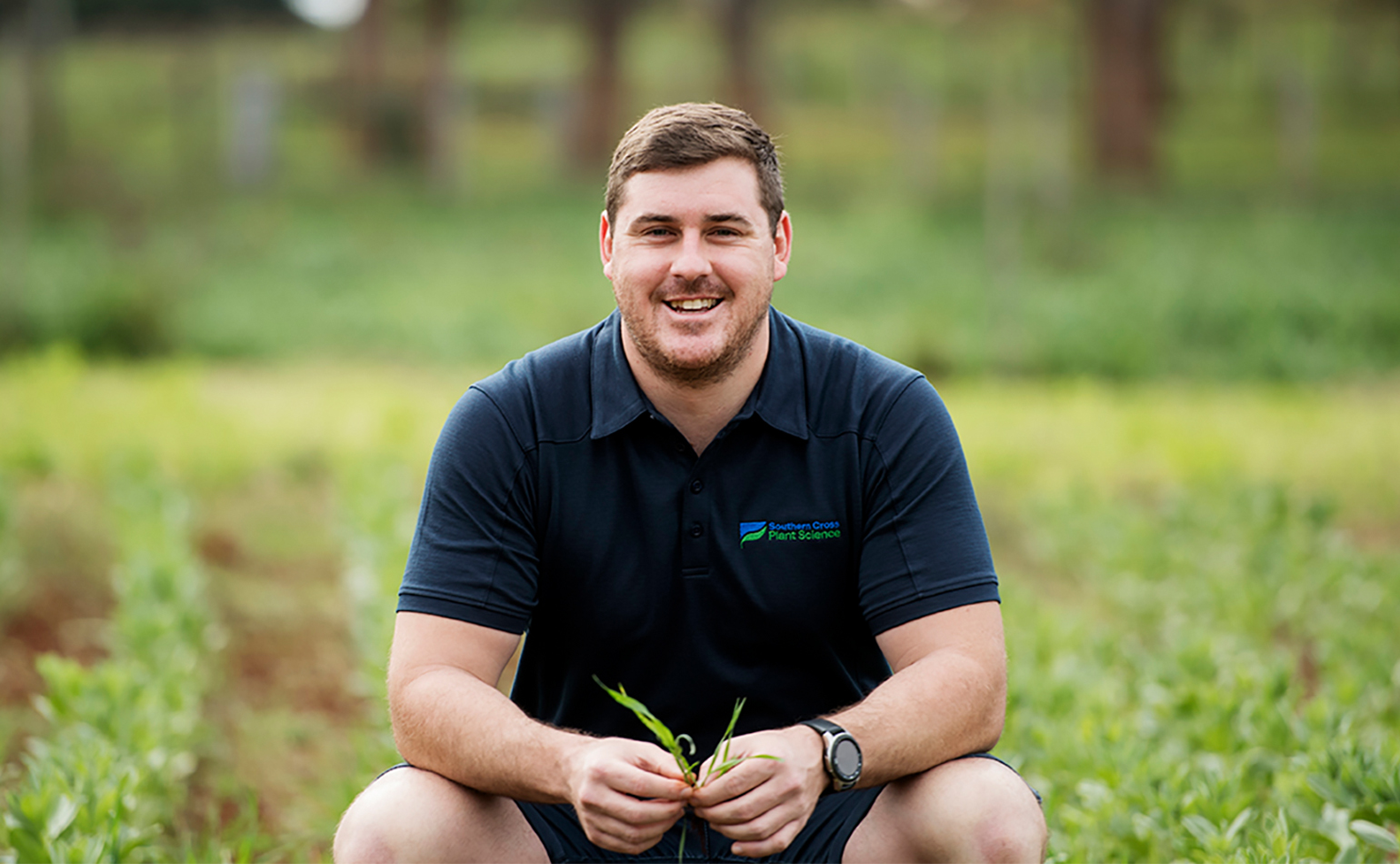Cameron Copeland is not your typical rugby league player.
He is one of the few PhD students to play at his local club and is determined to show younger players that university study is another option for them.
After he finished school, Cameron was selected by the Newcastle Knights for their under 20s team and offered a scholarship to the University of Newcastle where he studied a Bachelor of Science.
He moved south to Newcastle, intent on playing as much rugby league as he could and studying in between.
He discovered that he loved his degree. So much so, that instead of pursuing professional rugby league, he continued his studies and completed his honours.
After university he began working with NSW Department of Primary Industries. It was a freezing winter’s morning at a field site near Wagga Wagga that saw Cameron make the decision to embark on his PhD with the Soil CRC.
“I was speaking to Terry Rose about the PhD opportunity through the Soil CRC. He was telling me all about it and that it was based at Southern Cross University. Standing in that freezing field, the idea of going back up to the warm Northern Rivers was a no brainer,” he said.
However, it wasn’t just the warm weather that enticed him, the PhD project which is researching the mechanisms of soil microbes and how they affect crops was something he had been interested in for some time.
“After working in agronomy, I saw that soil parameters and microbiomes were often overlooked. I wondered to what extent soils influenced our agriculture sector and how they could be used for better growing environments. I find the world of soil microbes fascinating and I think they hold the key to improving our agriculture sector,” he said.
Cameron’s PhD is titled Understanding the Mechanisms of Soil Microbial Function and their Role in Cropping Systems.
He explains that his project uses soil metabolomics and DNA profiling to understand how a community of microbes is affected following inoculation into a different soil type.
“We have such a varied soil scape in Australia. Soil microbes behave differently across those soils. If you take a soil microbe community in calcareous soils and put it in a red chromosol – how will those microbes behave once they’re inoculated?”
Soil microbiomes are often underutilised by farmers. Through his PhD, he aims to provide farmers with as much information about how soil microbes work and how they can improve growing conditions.
Completing a PhD through a pandemic and more recently a natural disaster has been very challenging.
“Doing a PhD has its ups and down, but if you are passionate about what you are studying, the rest of it is easy,” he says.
He has found the support of his supervisors, his institution and the Soil CRC Student Coordinator, Dr Cassandra Wardle has been fantastic.
“Cassandra goes above and beyond; she puts in so much effort. During the pandemic, there were so few options for conferences and the Soil CRC provided workshops and webinars which were really helpful networking and learning opportunities.”
Cameron is still a force to be reckoned with on the rugby field, and he actively encourages younger players to consider pursuing university study.
“Going into trades has been the well-trodden path for rugby league players, but I want to encourage players to also think about university studies.”

